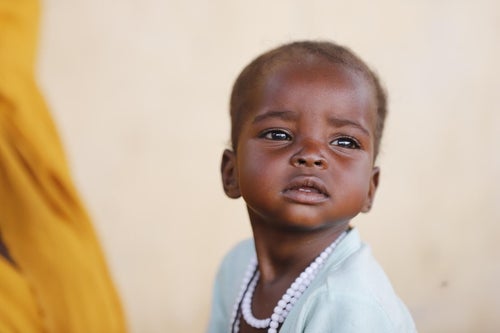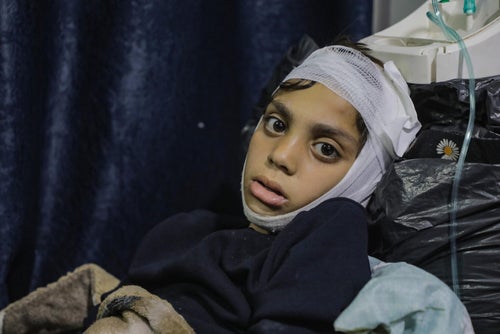From escalating conflicts in the Middle East to ongoing crises in places like Sudan and Bangladesh, UNICEF is working tirelessly to support children in emergencies, before, during and after they strike.
In the chaos of conflict and disaster, children are most vulnerable to dangers including hunger, disease, trauma and displacement. UNICEF is on the ground delivering lifesaving support within 48 hours, from therapeutic food and clean water to humanitarian cash assistance.
But that’s just the beginning of the work we achieve together.
UNICEF works around the world to deliver long-term support for children and families in crisis, from rebuilding communities to make them more resilient to future disasters, to ensuring children have access to education as they recover. From survival to safety, we are there for every step, for every child.
A timeline of care before, during and after an emergency
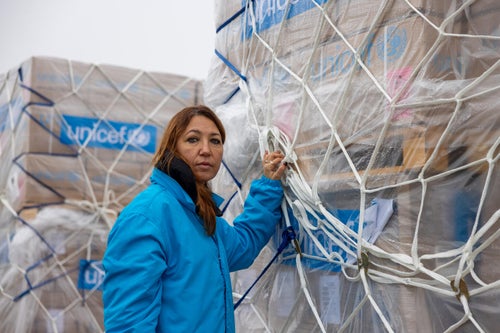
Action before an emergency
Our global network of strategically located warehouses ensures that essential supplies are ready to deploy within 48 hours to ensure a fast, effective response.

The lifesaving phase
In the first, lifesaving hours of an emergency, we activate our disaster response plan to ensure that children and families receive the immediate help they need, from providing clean water, sanitation and hygiene (WASH) to nutrition, education and child protection.
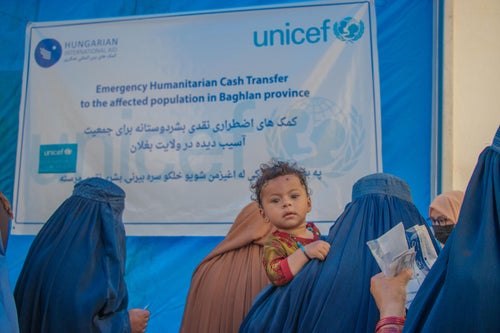
Reclaiming lives from crisis
We prioritise helping children and communities rebuild, supporting their emotional recovery, and empowering families with emergency cash assistance to reclaim their lives with dignity.
Providing immediate and long-term support to children in emergencies
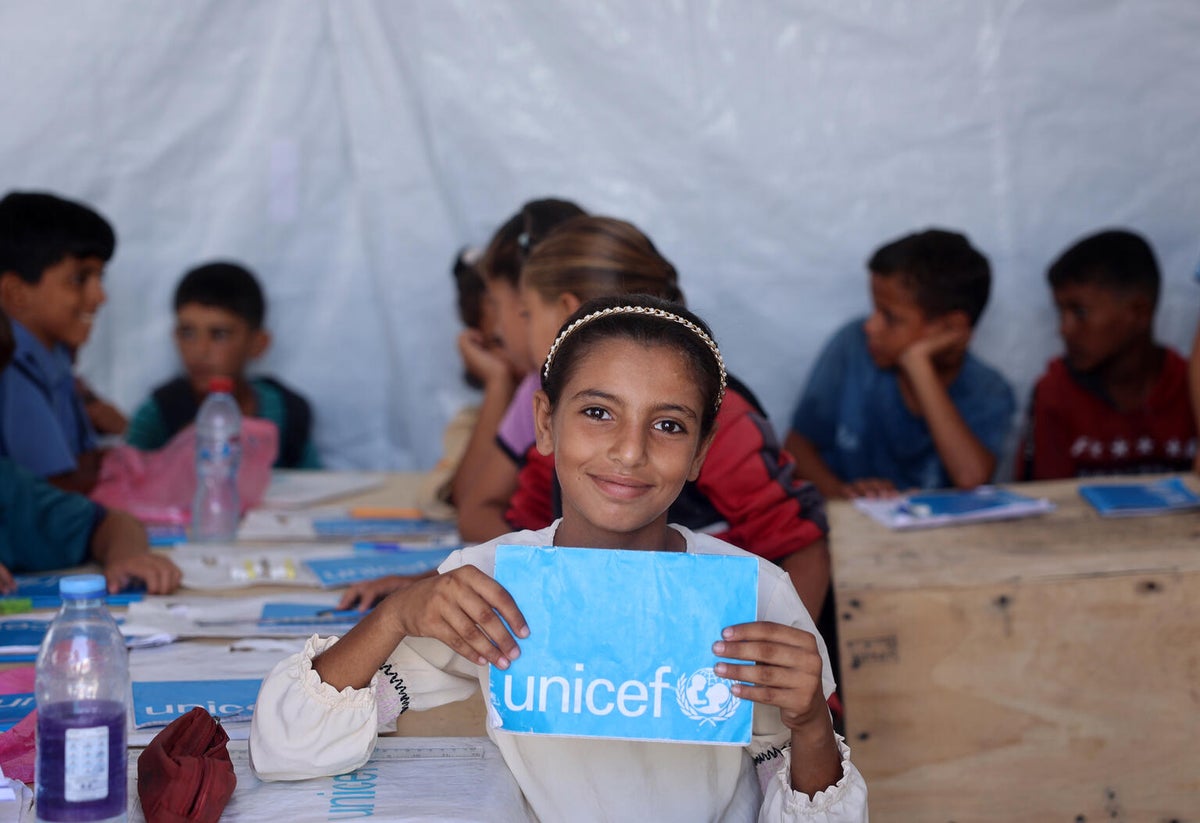
For more than a year, every child in the Gaza Strip has been exposed to deeply distressing events and trauma, marked by widespread destruction, relentless attacks, displacement, and severe shortages of essential necessities such as food, water, and medicine. UNICEF has been on the ground in the State of Palestine for four decades, and we have been scaling our response since the conflict escalated in October 2023.
Despite logistical challenges, our teams are reaching children like 10-year-old Tala with critical support including clean water, sanitation and hygiene (WASH) services, malnutrition screening and treatment, mental health and psychosocial support services, humanitarian cash transfers, and safe learning centres and educational supplies so children can continue their learning during the ongoing conflict.
"I’ve benefited from school by learning new words and lessons. I wish to return to Gaza so we can live freely in our home, go back to school, and be with my friends again."
Helping communities become more resilient after disasters
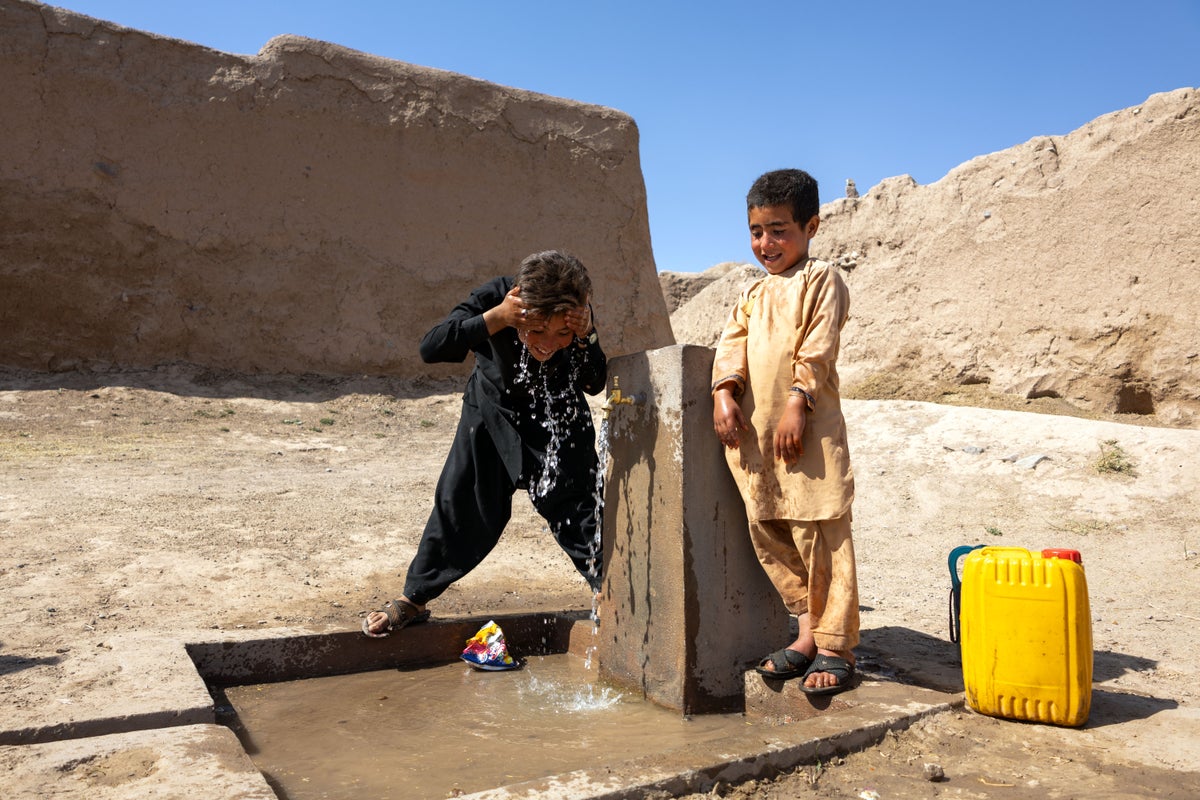
One emergency that didn’t make headlines in 2023 were the multiple 6.3-magnitude earthquakes that killed more than 1,400 people and upended the lives of 48,000 families in west Afghanistan, a region prone to natural disasters. UNICEF swiftly responded, supporting more than 96,000 children with urgent healthcare, clean water and sanitation, cash assistance, and psychosocial needs.
Over the past year, our teams have remained on the ground providing more than 1 million people with healthcare and repairing damaged homes, schools, and water supply systems, so communities can access safe drinking water and recover.
Not only are we committed to providing immediate and long-term support to children during emergencies, but we also invest in solutions that build communities’ resilience, ensuring families can adapt and recover from future disasters.
From Gaza to Afghanistan and beyond, children in crisis need our support more than ever.
Around the world, an unprecedented number of crises are having a catastrophic impact on children’s lives. In places like Gaza, Lebanon, Afghanistan and Sudan, violent conflict continues to displace children and families and leave them without access to essential supplies including clean water, food, and medicine, causing widespread malnutrition and disease.
At this time of immense need, please help us be there for every child, from the first critical hours to long-term recovery. Your support is vital for UNICEF to continue to scale up our response to these evolving crises.
"The impact of your donations on children and families is literally the difference between life and death, between people eating today or not, between children’s lives being forever affected by an emergency because they drop out of school. It’s about children with severe trauma receiving treatment and being reunited with their families in the aftermath of crisis."

Together, let’s be there for every step, for every child. No matter what.
Help children in emergencies
Your gift can give children in crisis immediate and long-term support.
Related articles
Stay up-to-date on UNICEF's work in Australia and around the world







